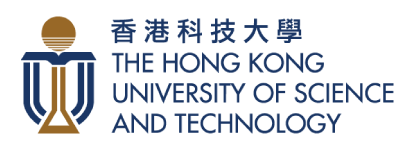Prof. Raian ALI
Professor, College of Science and Engineering, Hamad Bin Khalifa University
Bio:
Dr. Raian Ali is a Professor at Hamad Bin Khalifa University, Qatar, since January 2020, and a Visiting Professor at Bournemouth University, UK. He earned his PhD from University of Trento, Italy in 2010, and has held academic positions at the University of Limerick, Ireland, and Bournemouth University (2012–2020). His first degree is from Tishreen University, Syria. Raian’s research focuses on Technology and Human Behaviour, covering areas such as digital addiction, responsible technology use, and the influence of technology design on human well-being. His work spans social media, gaming, online behavior, and the ethical implications of technological systems. He chairs the Society of Persuasive Systems, serves on the Steering Committee of the Behaviour and Social Computing conference, and also Sync, the Digital Wellbeing program of Ithra, Aramco in Saudi Arabia. He directs the $3.8 million Cluster on Digital Citizenship in Qatar, overseeing six projects, 15+ national and international partners, and 50 personnel.
Prof. KONG Siu-Cheung
Research Chair Professor, Department of Mathematics and Information Technology, The Education University of Hong Kong
Bio:
Professor KONG Siu Cheung is currently a Research Chair Professor at the Department of Mathematics and Information Technology and Director of the Artificial Intelligence and Digital Competency Education Centre (AIDCEC) at The Education University of Hong Kong. He serves as the Editor-in-Chief of the international journal Research and Practice in Technology Enhanced Learning (RPTEL) and Journal of Computers in Education (JCE). He is on the Stanford Top 2% Scientist in Education list from 2019 to 2024. Professor Kong is leading projects on Artificial Intelligence Literacy education for primary, secondary and university students, teachers, parents, and administrative staff in Hong Kong from 2020 to 2027. He is the programme leader of the Master of Science in Artificial Intelligence for Executive Professionals [MSc(AIEP)] programme at the Education University of Hong Kong.

Prof. Min ZHANG
Professor, Department of Computer Science and Technology, Tsinghua University
Bio:
Dr. Min Zhang is a full professor in the Dept. of Computer Sci. & Tech., Tsinghua University. She is the chief director of the AI Lab. She specializes in Web search, personalized recommendation, and user modeling. She has been the Editor-in-Chief of ACM Transaction on Information Systems (TOIS) since 2020, and also serves as the General Chair of ACM MM’25, and PC Chair of CHIIR’24, RecSys’23, CIKM’23, ICTIR’20, WSDM’17, etc. She won the “Test-of-Time” award at SIGIR’24.

